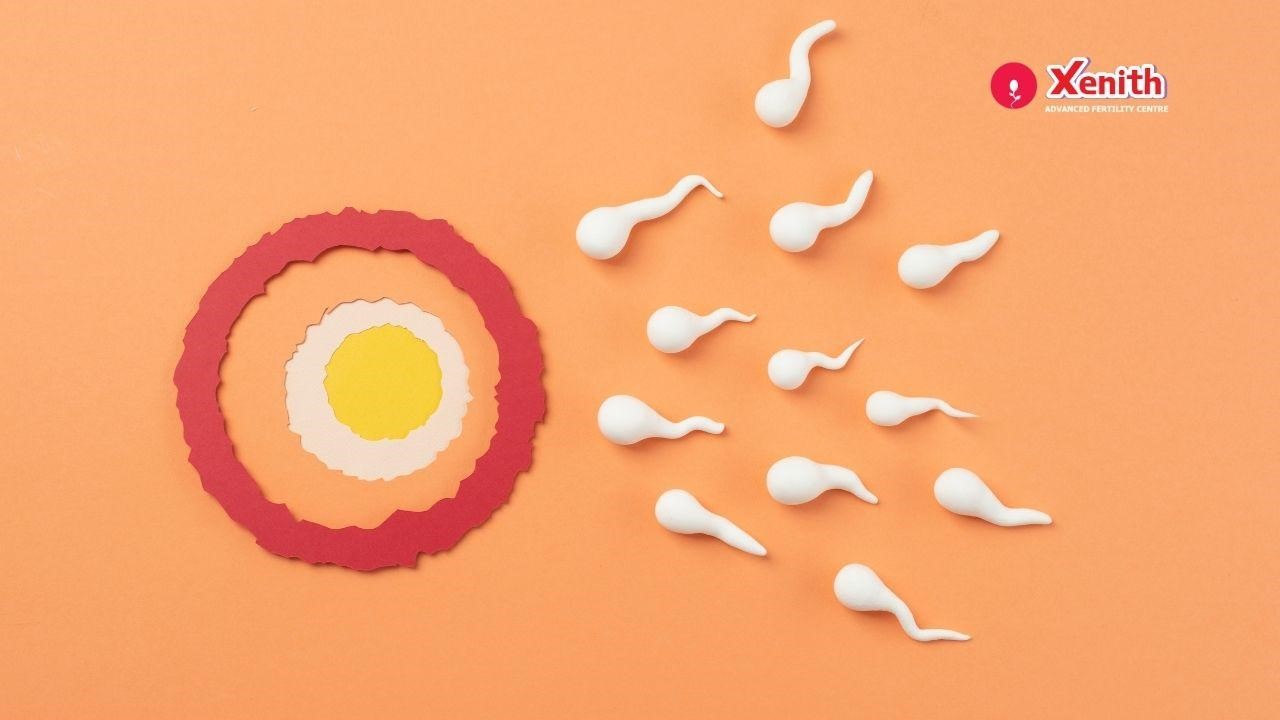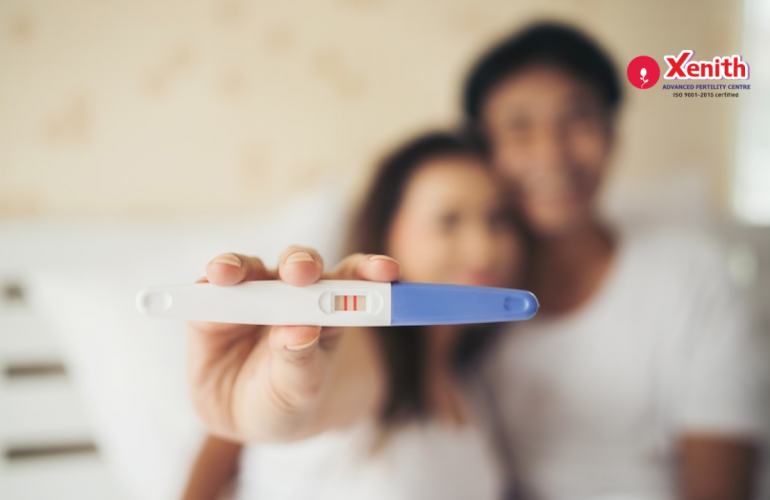Hyperspermia is a condition in which a man produces a larger than normal volume of semen during ejaculation. Semen is the fluid that contains sperm, along with some alkaline fluid from the prostate as well as some other fluids to help the sperm travel and survive its journey to fertilize the woman’s egg and it is ejaculated by a man during orgasm. Hyperspermia is very rare and it doesn’t cause any issues with his health although it could sometimes reduce his fertility.
The normal volume of ejaculate after 2-7 days of sexual abstinence is about 2-6 mL and more than 6 ml is thought to be hyperspermia according to one study (1). However, frequent ejaculation may lower the semen volumes and prolonged abstinence could increase the semen volume.

Free Thursday Consultation
What causes hyperspermia
It is not known exactly what causes hyperspermia. Long periods of abstinence could increase semen volume. Also use of steroids, certain medications used for surgery and drugs to increase sexual drive could cause hyperspermia. Certain diets rich in protein and fibres may also cause hyperspermia. An infection in the prostate could also lead to hyperspermia.
Does hyperspermia affect fertility
The quantity of sperm or the sperm concentration in the ejaculate could affect fertility although in most cases, hyperspermia doesn’t affect fertility too much. If the ratio of number of sperm to volume of semen is within the normal limits or there is more sperm, then this could even increase fertility due to the higher semen volume. However, if the semen is thinner and results in dilution of the sperm, then there is a decrease in fertility and it may take longer than usual to conceive. If there is a longer period of sexual abstinence, there may be a higher proportion of sperm that is dead or damaged which could also lead to infertility. Taking steroids or certain drugs could cause hyperspermia.
Symptoms of hyperspermia
Of course, the main symptom of hyperspermia is producing a higher volume of semen during ejaculation and this might increase risk of infertility like taking longer to conceive or having a slightly higher risk of miscarriage. Some men with hyperspermia might have a higher sex drive and some others also report slight discomfort or pain during ejaculation.
How is it diagnosed
The doctor will give you a physical exam and you will have semen analysis done to check your sperm count, semen volume as well as other parameters in your semen. The semen volume cannot be tested in a single ejaculation. A blood test might be done to check your hormone levels. An ultrasound might also be done to check for any issues related to infertility.
Treatment
Talk to a fertility specialist to increase sperm count if you are facing issues with infertility. Speak to a urologist to reduce the semen volumes. Infertility issues could be addressed through in vitro fertilization (IVF), intrauterine insemination (IUI), Intracytoplasmic sperm injection (ICSI) or other assisted reproductive technologies. IUI involves washing, and concentrating the sperm and injecting this into the woman’s uterus when she is ovulating in order to aid in conception. IVF involves stimulating the woman’s ovaries to produce more than one mature egg and retrieving these eggs and fertilizing them with either many sperm (IVF) or injecting one sperm into the egg (ICSI) for fertilization in a laboratory setting. The fertilized egg is then transferred back to the woman’s uterus for implantation. You don’t necessarily need to treat hyperspermia if it is not causing any issues. However, if it’s affecting your fertility and you are having trouble conceiving, it might be important to see a fertility specialist or a medical expert to have this reviewed and rectified. The experts at Xenith Advanced Fertility Centre could help you to overcome this issue if you are having trouble conceiving. Come talk to us if you have any questions.




